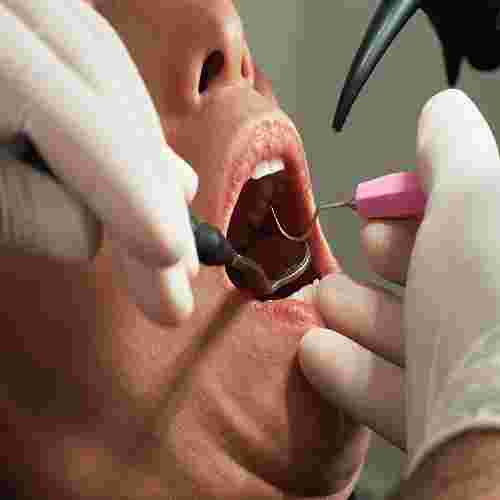-
Nieuws Feed
- EXPLORE
-
Pagina
-
Groepen
-
Events
-
Blogs
-
Marketplace
-
Forums
-
Spellen
Making Dental Appointments a Positive Experience for Your Child

Introduction: Dental visits are a crucial aspect of maintaining good oral health. However, for many children, the prospect of going to the dental clinic in Aylesbury can be daunting or even scary. It's important for parents and caregivers to help make these appointments a positive and less intimidating experience. This not only ensures your child's oral health is taken care of but also helps in fostering a lifelong habit of regular dental check-ups. Here, we discuss several strategies to help make dental visits a positive experience for your child.
Understanding Dental Anxiety in Children: Firstly, it's vital to understand that dental anxiety is common among children. The unfamiliar environment, strange noises, and the sight of dental instruments can be overwhelming. Recognizing this fear allows parents to address it directly and find ways to mitigate it.
Start Early: Introducing your child to dental visits at an early age is beneficial. The American Academy of Pediatric Dentistry recommends that children have their first dental visit by the age of one or within six months after their first tooth appears. Early visits help your child become familiar with the dental office environment, reducing anxiety over time.
Choose the Right Dentist: Selecting a pediatric dentist can make a significant difference. Pediatric dentists specialize in treating children and are trained to make children feel at ease. Their offices are often designed to be child-friendly, featuring playful decor and activities to keep children entertained and comfortable.
Prepare Through Play: Children learn and gain comfort through play. Before a dental visit, consider role-playing as the dentist and patient with your child. Use a toothbrush to count and "clean" their teeth, and then switch roles. There are also children's books and videos about going to the dentist that can help prepare them for what to expect.
Communicate Positively: How you talk about the dentist can influence your child's perception. Use positive language when discussing dental visits and avoid sharing any of your dental anxieties. Explain that the dentist is a friend who helps keep our teeth healthy and strong.
Schedule Wisely: When scheduling the appointment, choose a time when your child is usually well-rested and cooperative. For many children, this is in the morning. A well-timed appointment can make a significant difference in how your child reacts to the visit.
Stay Calm and Supportive: Children often look to their parents for cues on how to react in new situations. Staying calm and positive during the visit can help reassure your child. Most pediatric dentists encourage parents to stay close during the check-up to provide comfort and support.
Use Positive Reinforcement: After the visit, praise your child for their bravery and cooperation. Some parents find it helpful to reward their child with a small, non-food related treat, such as a sticker or a visit to their favorite park. This positive reinforcement can help build a positive association with dental visits.
Follow Up at Home: Maintaining good oral hygiene practices at home reinforces the importance of oral health. Encourage regular brushing and flossing and make it a fun part of your child's routine. This consistency helps emphasize the role of dental visits as just another part of taking care of their teeth.
Conclusion: Making dental appointments a positive experience for your child involves preparation, choosing the right dentist, and using positive reinforcement. By addressing dental anxiety early and fostering a supportive environment, you can help your child feel more comfortable and even look forward to dental visits. This not only ensures their oral health is taken care of but also sets the foundation for healthy dental habits that last a lifetime. Remember, a positive dental experience for your child starts with you.
- Whats New
- Shopping
- Wellness
- Sports
- Theater
- Religion
- Party
- Networking
- Music
- Literature
- Art
- Health
- Spellen
- Food
- Drinks
- Fitness
- Gardening
- Dance
- Causes
- Film
- Crafts
- Other/General
- Cricket
- Grooming
- Technology

